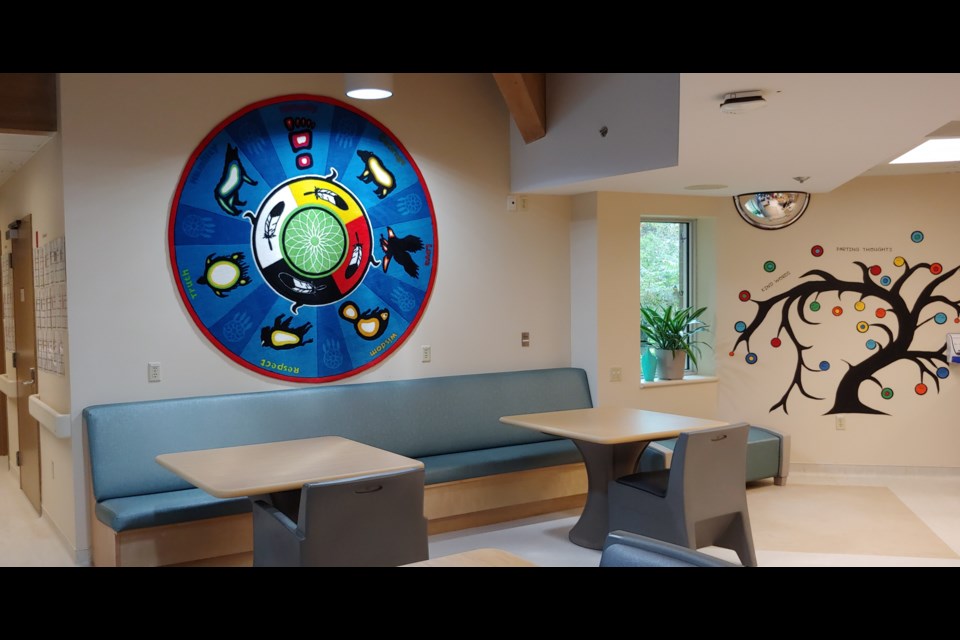Jennifer Moore says Hummingbird Lodge has been years in the making and says it is a "unique opportunity," for both clients and staff to start fresh.
"There are not very many programs in which the staff can all start at the same time, can be truly a part of building the mission, the vision, and values for the program," points out Moore, the Director of Mental Health and Addictions and Forensic Services at the North Bay Regional Health Centre. She says the staff "is developing a rapport that is going to be so key for our patients in that they're all going to be on the same page."
The facility, located on the grounds of NBRHC, is slated to open within weeks. Hummingbird Lodge's mission is to provide services to women from across Ontario "having difficulty progressing in recovery due to their mental health condition and/or due to their current clinical setting not meeting their treatment needs."
NBRHC President and CEO Paul Heinrich says Hummingbird Lodge will support clients with "a holistic approach to their treatment and help them make gains and recoveries they were unable to make in other clinical settings."
Hummingbird offers a full range of treatment options, including, but not limited to Cognitive Behavioural Therapy, Dialectical Behavioural Therapy, cultural programming, and harm reduction approach to self-injury.
Breanna May, an occupational therapist, is eager to welcome clients to Hummingbird. She says the team will employ individual and group psychotherapy programs, focusing specifically on trauma and substance use with clients.
"We offer groups focusing on safe coping skills, as well as recognizing healthy boundaries in relationships," plus working on grounding, says May, when it comes to "techniques to deal with their illness."
The eight beds are designed for women who are under the jurisdiction of the Ontario Review Board. These are "individuals who have been found by a court to be either unfit to stand trial or not criminally responsible on account of mental disorder."
Many of Hummingbird's future patients will have struggled in other forensic facilities in addressing and dealing with trauma from the past. Moore says this often creates a barrier for treatment.
"There aren't very many programs across the province that are trauma-informed," says Moore. "Our focus is truly on working with women who have struggled in being able to move forward in their recovery."
She says the facility has finally come to fruition after five years of planning, staffing, and training. Culturally appropriate spaces for Indigenous clients have been created in the facility, including an area for smudging.
"As director of this unit, getting off on the right foot is going to be so important," she adds.
She says NBRHC learned the unit would be added in 2015 and has faced and overcome several hurdles since that time, most recently the COVID-19 pandemic.
"We've had construction delays, struggles with recruitment, there is a psychiatry shortage across the nation — and that's been a big challenge," advises Moore.
"It's really important that we focus not just on opening Hummingbird but also maintaining the stability of all the other forensic patients that we have."
Moore observes the recent hiring of a third forensic psychiatrist has played a large role in readying the facility for the anticipated arrival of its first client in October. Training for the 20-plus team members started in early September and will run for four weeks.
"We have a very rigorous training program in place," says Moore. "We have partnered with the Centre for Addiction and Mental Health in Toronto, they are offering us a wide range of training to ensure that we are able to provide the level of service we are wanting for these patients."
Moore adds, "It's so important for us the patients are part of the journey. These women have had a lot of control taken away from them. This is a place we want to give that back, we want to empower them to be a part of their recovery, to take charge of their recovery — and to own that."



